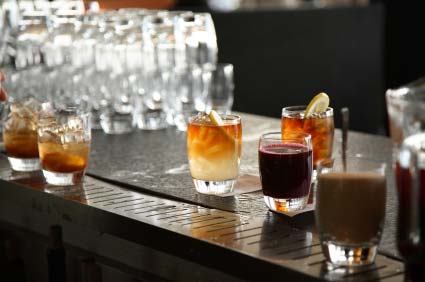The Texas dance hall is an iconic part of the Lone Star State’s history and has been around for more than 140 years. Most of the classic dance halls in this area were built by Czechoslovakian and German immigrants as meeting places for these cultural groups. By attending community events at these locations, immigrants could share their traditions with each other and with their children through music, dancing and other cultural activities. These hard-working families also enjoyed the chance to relax and blow off some steam after a long week on their farms and ranches. Today, many of these historic dance halls still stand and maintain a current Texas alcoholic beverage license, allowing them to continue to serve their communities and clientele.
Humble Beginnings
Many of the original Texas dance halls did not serve hard liquor to their customers, who were expected to provide the alcohol themselves. Instead, these venues offered mixers that could be combined with alcohol to create mixed drinks on site. For those dance halls that did serve alcoholic beverages, beer was the most commonly offered drink. Singing and dancing were generally the focus of the evening; instrumental performances were also popular attractions in these community centers. Many groups who later performed at music festivals in Texas got their start in these local dance hall environments. The earliest Texas dance halls were built by German settlers; Czechoslovakian immigrants typically held their dances in private homes until the early 1900s, when widespread building projects were funded by fraternal organizations dedicated to supporting the Czech way of life.
Modernization and Assimilation
As more Texas residents left behind the farming and ranching life for the allure of jobs in the big city, dance halls became less representative of individual cultures and more reflective of the spirit of the Lone Star State as a whole. While ethnic music and dancing were still practiced in these venues, dance halls began to embrace a wider range of cultural traditions. As the separations between ethnicities in the dance hall environment became less pronounced, interactions between those of different social classes, racial backgrounds and life experiences allowed greater exposure to a wide range of traditional songs and instrumental techniques. The blending of various musical styles led naturally into the development of entirely new styles of music that included Texas swing, conjunto, Tejano and honky tonk. By combining the rhythms and folk melodies common among the immigrant populations of this area with new sounds, dance halls continued to have a major impact on the cultural traditions of Texas residents.
A Link to the Historic Past
Houston, Texas saloons and dance halls typically serve up live country music and plenty of room on the dance floor along with plenty of cold brew at the bar and a current Houston beer license. According to Texas Dance Hall Preservation. Inc., the number of currently active dance halls in Texas has fallen from more than 1,000 during their heyday to a few hundred currently in business. However, Texas dance halls have recently enjoyed a revival in popularity driven by their historic importance and their unique appeal. Many of these venues maintain a family-friendly atmosphere in keeping with their traditional role as community gathering spots for residents of the Lone Star State.
Although many of the original dance halls have fallen into disrepair or have been abandoned due to the expense of maintaining them, Houston establishments continue to carry on the traditions of the dance hall for new generations of patrons. For these modern descendants of these traditional venues, obtaining and maintaining a Houston liquor license can ensure that patrons can quench their thirst after a rousing round of the Texas two-step. Working with a professional firm can streamline the liquor license application process and can ensure that dance hall owners stay on the right side of all Texas regulations when making a little history of their own.

